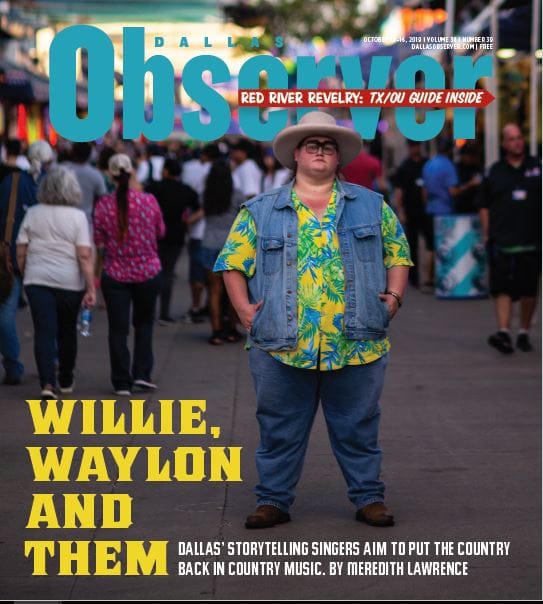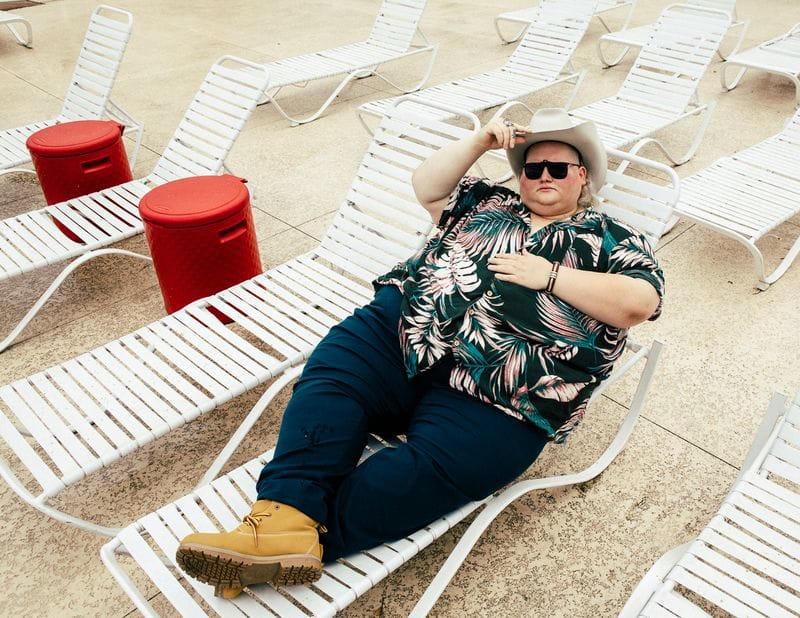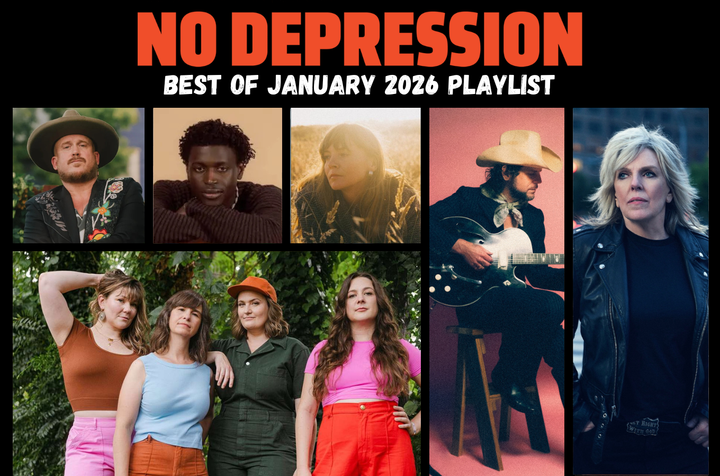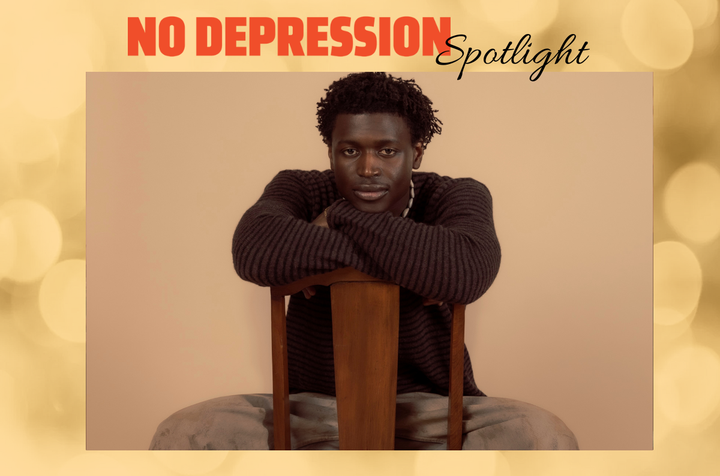Joshua Ray Walker’s music has always felt like sanctuary to me. It’s comforting in its rawness, for the granular, exquisite way his lyrics capture humanity, and utterly arresting at times thanks to his high lonesome voice. His first three studio albums, Wish You Were Here (2019), Glad You Made it (2020), and See You Next Time (2021) comprise a trilogy of stories that unfold both in tremendous, haunting beauty — “Canyon,” “Voices,” “Flash Paper” — and bravado — “Bronco Bills,” “Three Strikes,” “Sexy After Dark.” Suffusing an abundant curiosity, and piercing wit, Walker puts his finger on the grit of human existence, over and over through his characters.
I might not be here writing about roots music if it weren’t for Walker’s music. While that sounds a little reductive, it’s a good story: I’ve been a writer and a journalist much longer than I’ve been writing about roots music. The pivot started (although I didn’t realize it at the time) on a last-minute trip I took on a whim to Little Rock, Arkansas in late fall 2018. In the midst of a crushingly-consuming first semester at Columbia University’s rigorous M.A. program, studying longform arts and culture journalism, I flew into Little Rock for 24 hours to see Ramblin’ Jack Elliott, the Greenwich Village folk revival legend, and try to land an interview. (I did.)
Disoriented and unsure what to expect, I walked into the White Water Tavern, that storied venue and roots music watering hole, by chance during Walker’s soundcheck (since he was opening for Elliott that night). At the time, Walker had yet to release his debut Wish You Were Here, and was a virtual unknown outside of his native Dallas, Texas.
For soundcheck, Walker delivered “Lot Lizard,” a longing portrait of intoxicating, impossible love between a long-haul trucker and a gas station prostitute. It’s the kind of world-weary song that exudes a patina of bygone days, both invigorating in its clarity on the human experience, and devastating for the same reason.
I’ve been thinking lately about why we relate to certain music and musicians. It’s always deeper than “I like this” or “This sounds pretty,” although that’s certainly part of it. It boils down to how their humanity touches our own experiences. For me, that connection forms through lyrics. I carried all the tidbits of the lyrics from Walker’s set that I could recall and the riveting memory of his voice around in my head long after. And with no official recordings out in the world, I spent months making people listen to the few clips I could scrounge out of YouTube.
A year later, when I moved to Dallas for a short stint working at the Dallas Observer, I wrote a cover story about Walker and the up and coming musicians in the burgeoning local Americana scene; it was my second big music story, and writing about music became a refuge from the news writing I didn’t really want to be doing.

Walker came to success the hard way — years of playing long background music sets at Texas BBQ joints then spending hundreds of days on the road a year — and to a light, beachy album, an extraordinarily tough way, too. He wrote it during treatment for his stage 3b colon cancer, while dreaming of the freedom of the road and carefree days at the beach. To pass the time, he invented an escape, the Tropicana Hotel, where shoes are optional and fun and relaxation, mandatory. Produced by Walker’s long-time friend and Dallas music stalwart John Pedigo, Tropicana is Walker’s fourth studio album of original songs. Like all his others, it’s an acutely human, coyly observant, and self-effacingly honest album.
“Why put off for tomorrow / what you want for today,” Walker sings on “Tropicana,” the title and opening track. Illness has a way of re-aligning priorities, but it’s rare to be presented with that context without living through the hell yourself. Walker’s lyrical power has always been in the balance between poignance and life-affirmation. With Tropicana he ratchets up the contrast. Its beachy, Jimmy Buffett and George Straight-inspired sound is utterly antithetical to the urbane, fluorescent-lit vapidity of hospital drudgery.
Distinctly vacation-worthy, after “Tropicana,” the album reclines for a few tracks in the peach-tinged twilight on a beach; “Keys to the Tacoma,” “Laguna,” “Dance With Who You Came With” all convey the joy of letting loose. Borrowing Blues Traveler’s guitar lines and energy, on “I Don’t Wanna Be Alone Tonight,” Walker looks for some companionship. For the album’s second half, he steps out of paradise a little, tackling what it takes to keep going in “Heavy Stones,” slips in a few of his signature quirky characters in “Dirty Laundry,” and pens a wry letter to a beloved drink in “Whiskey to my Heart.”
Even on such a light album, Walker has a way of ending on at a bittersweet moment. With his previous original studio albums, each concluding track offered a nugget of life experience tempered by uncertainty — “Last Call,” “D.B. Cooper,” and “See You Next Time.” “I Hope I Have Fun Dying” is no exception. Almost anthemic and innately singable, it conveys Walker’s lingering ambiguity about his future through an enormously catchy track, which transpires as Walker imagines getting mind-blowingly high in a number of amusing ways. Casually and subtly though, the album’s genesis returns as, through the halcyon haze, Walker flirts with what it might be like to cross the astral plane, as well.
After he released See You Next Time, the initial album trilogy’s conclusion, Walker told the world the next album would be something different. He just couldn’t have known how different life would be by the next time he released a full set of original songs. Tropicana certainly isn’t the same, but neither is it a shocking deviation. Instead, it feels like a bridge from which Walker could go many ways. And I hope he will. Life is too short to live in any one musical box.
Joshua Ray Walker's Tropicana released June 13 via Thirty Tigers.





Comments ()